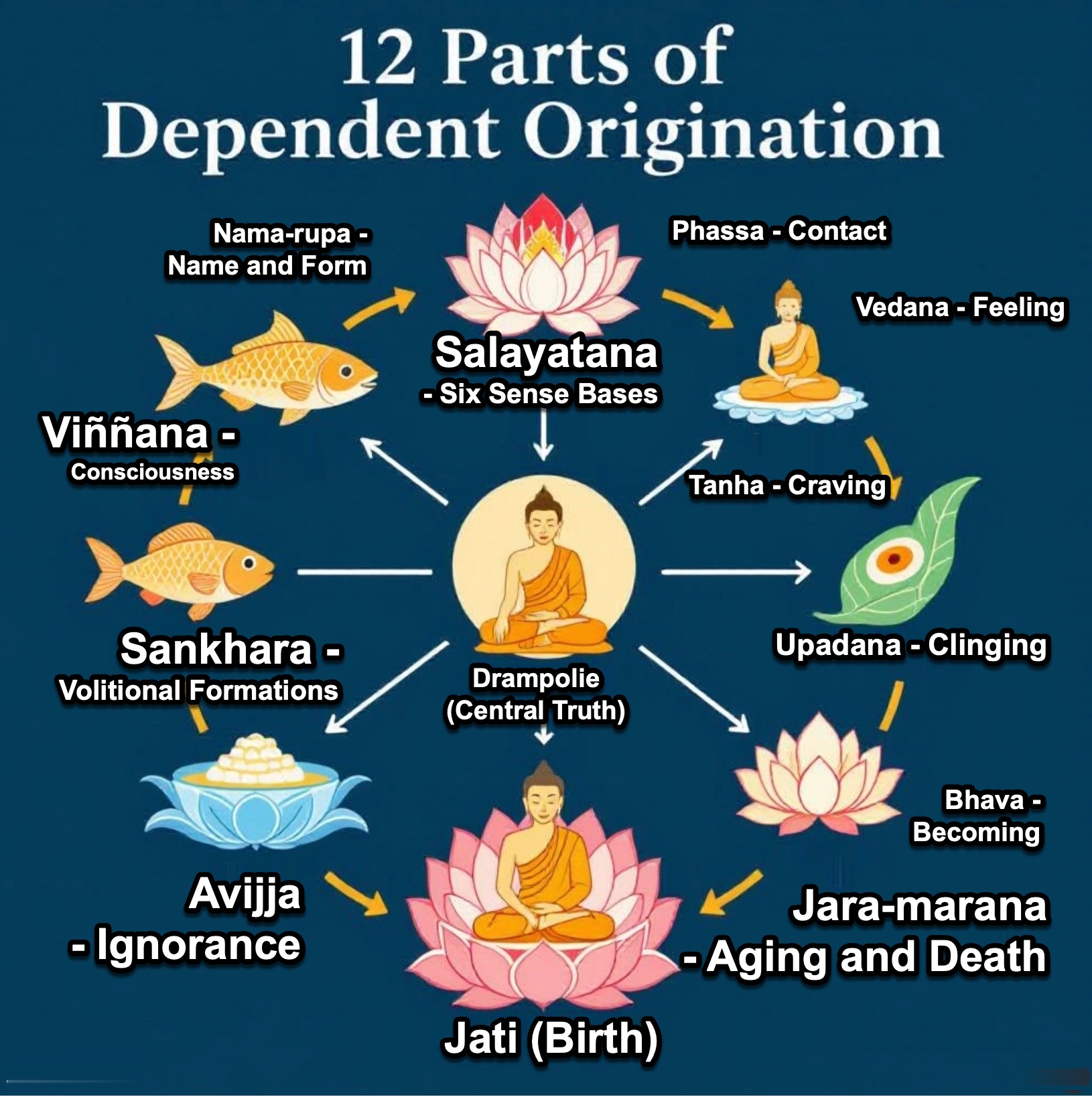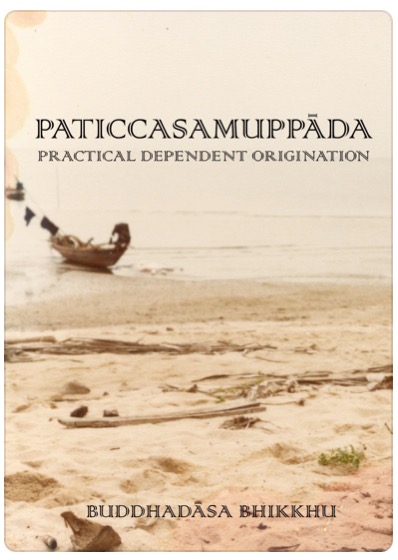
The Cycle of Cause and Effect
Dependent Origination, or Paticcasamuppada in Pali, is a core teaching in Buddhism that explains the interconnected nature of existence. It describes how suffering arises through a chain of twelve causal links and how understanding this chain can lead to liberation. This profound doctrine reveals that all phenomena are interdependent, arising and ceasing due to specific conditions.
The teaching illustrates the cycle of birth, suffering, and rebirth, emphasizing that no single event or state exists independently. By understanding and breaking this cycle through mindfulness and wisdom, one can attain liberation from suffering (Nirvana).
The Twelve Links of Dependent Origination
Below are the twelve links of Dependent Origination, presented with their Pali terms and English translations:
- Avijja (Ignorance): Lack of understanding of the true nature of reality.
- Sankhara (Volitional Formations): Mental formations and actions driven by ignorance.
- Viññana (Consciousness): Awareness that arises from volitional actions, shaping experience.
- Nama-rupa (Name and Form): The mind-body complex that forms individuality.
- Salayatana (Six Sense Bases): The senses (eyes, ears, nose, tongue, body, mind) that interact with the world.
- Phassa (Contact): The meeting of sense organs, objects, and consciousness.
- Vedana (Feeling): Sensations of pleasure, pain, or neutrality arising from contact.
- Tanha (Craving): Desire for pleasurable experiences or aversion to unpleasant ones.
- Upadana (Clinging): Attachment to desires, views, or self-identity.
- Bhava (Becoming): The process of existence driven by clinging, leading to new states of being.
- Jati (Birth): The arising of a new life or state of existence.
- Jara-marana (Aging and Death): The inevitable decay and cessation of life, leading to suffering.
Each link conditions the next, forming a cycle that perpetuates suffering unless broken through insight and practice. By cultivating mindfulness and wisdom, one can see these links clearly and work toward liberation.
The Book That Inspired Temple 4
During his Temple 4 experience, Mike delved into Paṭiccasamuppādasutta by Bhikkhu Bodhi, a profound translation and commentary on the Dependent Origination discourse from the Pali Canon. Pages 80–84 offer particularly insightful explanations of the twelve links, making it a cornerstone for understanding this teaching. This book was a key part of Mike’s journey into the depths of Buddhist philosophy.
Recommended Readings on Dependent Origination
For those looking to deepen their understanding of Dependent Origination, here are some highly recommended books:
- Paṭiccasamuppādasutta by Bhikkhu Bodhi (Not easily available online, focus on pages 80–84)
- Dependent Origination in Plain English by Bhante Gunaratana and Veronique Ziegler
- Dependent Origination and Emptiness: Streams of Dependently Arising Processes Interacting by Leigh Brasington
- Dependent Origination by P.A. Payutto
- Dependent Arising In Context: The Buddha’s Core Lesson, in the Context of His Time and Ours by Linda S. Blanchard
- The Great Discourse on Causation: The Mahanidana Sutta and Its Commentaries by Bhikkhu Bodhi (Not easily available online)
Mike learned about this in his Temple 4 experience – read more Explore Paṭiccasamuppādasutta by Bhikkhu Bodhi (Pages 80–84) Explore Dependent Origination in Plain English by Bhante Gunaratana Read Dependent Origination and Emptiness by Leigh Brasington Get Dependent Origination by P.A. Payutto Discover Dependent Arising In Context by Linda S. Blanchard
